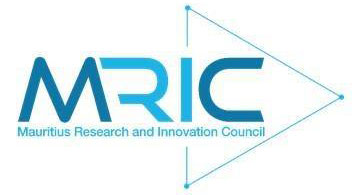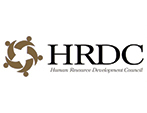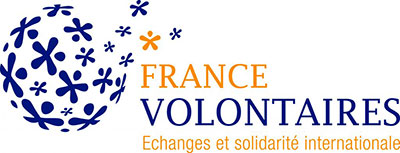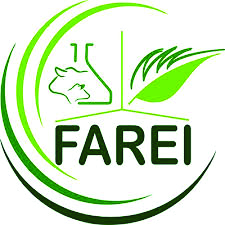
Mauritius Research Council (MRC)
The MRIC was set up in May 1992 to promote and coordinate the national investments on research. The objectives are : Encourage, promote and coordinate research and development in every field of activity: scientific, technological, social and economical, Advise the government on the scientific and technological politics, Establish the guidelines and formulate the national politics on research and development, Encourage the commercial use of the research and development results for national interest.
The Mauritius Research and Innovation Council (MRIC) supports the Smart Agriculture project financially through the Biotechnology Research and Innovation Grant developed by the Ministry of technology, communication and innovation. This grant aims at promoting partnerships between the private and public sector to implement biotechnological projects of a socio-economical interest. The BRIG is applicable for 4 areas of activities including sustainable agriculture and food security.

L’Union Européenne (UE)
The European Union (UE) is an economical and political partnership between 28 European states. The phase 2 of the Smart Agriculture project receives an important financial support from the EU, through the « GCCA+ flagship initiative “Supporting Climate Smart Agriculture for smallholders in the Republic of Mauritius” » programme.
The GCCA+ (Global Climate Change Alliance) is a programme launched in 2007 by the EU. It aims at enhancing the discussions and cooperation with developing countries, focusing on under developed as well as developing insular states. The GCCA+ is a major initiative of the EU. Its contribution is to address the challenges of the global climate change.
The aim of the “Supporting Climate Smart Agriculture for smallholders in the Republic of Mauritius” programme is to contribute to the food security in Mauritius by increasing the resilience of small growers in the face of climate change as well as increasing the capabilities of small vulnerable farmers and other key players in the sector so as to move towards a smart agriculture.
The Smart Agriculture project aims at working cross-sectionally with the different stakeholders of the agricultural development in Mauritius. It accompanies the agro-ecological transition of the vegetable cultivation systems and is supported by the GCCA+ programme of the EU.
The hypothesis being put forward is that the collaboration and the collective reflection between all the different types of producers will facilitate the technical exchanges, help in furthering the discussions while taking into consideration all the different contexts and get the whole community of growers to integrate on the national level their decisions in the fields.

Human Resource Development Council (HRDC)
The Human Resource Development Council (HRDC) was set up as a corporate body in November 2003 as per the HRD Act 2003. The setting up of the HRDC was inspired by recommendations of a report on National Integrated Training Strategy, prepared by an International Labour Organisation (ILO) consultant, whereby the need for an apex body that would guide and provide the necessary thrust for human resource development in Mauritius was felt.
HRDC has been vested with the responsibility to look after and promote the development of the labour force in Mauritius in line with the requirements of a fast growing economy.
The objectives of the HRDC as spelt out in the HRD Act 2003 are to:
Promote human resource development in line with national economic and social objectives; Stimulate a culture of training and lifelong learning at the individual, organisational and national levels to enhance employability of the labour force and increase productivity; and Provide the necessary human resource thrust for a successful transformation of the country’s economy into a Knowledge Economy.
Thematic trainings are one of the most important aspects of the project. HRDC will help the smart agriculture project finance these, under the Sectoral Skill Development Scheme.


Région Réunion / France Volontaire
The objective of Région Réunion / France Volontaire is to staff the project through two VIS who will respectively be a network animator and a project coordinator under the Mauritius Chamber of Agriculture.
The VIS is a “Volunteer of International Solidarity”. This volunteering act is about “accomplishment of a mission of general interest abroad in the areas of cooperation for development and humanitarian actions”. This mission is organized by the welcoming partner for which the volunteer can bring his/her support through a technical assistance or mediation. The sending partner (certified association by the French ministry of Foreign Affairs) has as goal to bring the two countries together. The volunteer commits to an ethical framework in a social and societal context. The scope of intervention is broad : teaching, health action, information and communication, sustainable development, project management, public or territorial administration.
This type of projects aim at: Strengthening the professional capabilities and competencies of local stakeholders Contributing in the outward orientation ; networking, Maintain a good regional cooperation.

Food and Agricultural Research Extension (FAREI)
The FAREI is a strategic parastatal institution which has the reonsibility to conduct research in non-sugar crops, livestock, forestry and to provide an extension service to farmers in Mauritius.
The activities of the FAREI are divided in different sections : Reseach : it aims at the establishment of sustainable production systems and the development of new cropping technologies. It focuses on the development of novel varieties through breeding programmes (biotechnology, optimal resource management and value addition through agro-processing).
Extension : aims at increasing farmers’ knowledge and skill to improve their productivity and income.
Training : increasing the knowledge and competencies of the farmers, ease the introduction of innovative practices.
FAREI is the intermediary who is more present on the field with the farmers ensuing thus the linkage between the agricultural strategies of the Mauritian government and their implementation. The administrative structure of the FAREI gives it the autonomy in terms of agricultural advice : entomology, pathology, research and field experience

Centre de Coopération International en Recherche Agronomique pour le Développement (CIRAD)
The CIRAD is the French technical scientific partner who has been present since the start of the Smart Agriculture project. With 1800 agents, among which more than 800 researchers, the CIRAD partners with more than 90 countries on different programmes. With its 35 research units, the CIRAD has developed a set of research tools which is accessible to partners in the South and Europe.
It focuses mainly on 3 research areas :
Biological systems : Understanding the biological systems from the molecular level to the ecosystem.
Production systems and tropical production transformation : Analysing the practices and the performances of agricultural systems, from parcels to large scale farming.
Environments and societies: Accompanying the urban, rural and global key players.
The CIRAD brings to this project its expertise in the agro-ecological sciences on the cultivation system level : introduction, adaptation and initiation to different techniques and innovative biotechnologies, training and deepening the discussions on the research enterprises in Mauritius by the FAREI.

The Global Environment Facility (GEF) Small Grants Programme (SGP) of the United Nations Development Programme
Founded in 1992, coinciding with the pivotal Rio Earth Summit, the GEF Small Grants Programme epitomizes the core principles of sustainable development through its commitment to the philosophy of “thinking globally, acting locally.” This initiative plays a crucial role in fostering environmental stewardship by offering both financial resources and technical expertise to grassroots projects. These projects are designed not only to conserve and rehabilitate natural ecosystems but also to improve the quality of life for local communities. By empowering individuals and groups to take action, the programme illustrates how localized efforts can effectively contribute to broader environmental goals. The SGP serves as a testament to the power of community-driven initiatives in achieving a harmonious balance between human aspirations and ecological sustainability. By focusing on the intersection of environmental conservation and socio-economic development, the programme enables communities to address their unique challenges while simultaneously contributing to global environmental objectives. This dual focus not only enhances the resilience of local populations but also fosters a sense of ownership and responsibility towards their natural surroundings. Ultimately, the GEF Small Grants Programme exemplifies how targeted support for local actions can lead to significant, positive impacts on both the environment and the livelihoods of individuals.

Varuna Biodiversité
Varuna, funded by the Agence Francaise de Développement (AFD) and implemented by Expertise France, aims to combat the erosion of biodiversity in the southwestern Indian Ocean. This initiative encompasses five countries within the region: the Union of Comoros, Madagascar, Mauritius (including both Mauritius Island and Rodrigues), France (specifically Réunion, Mayotte, and the French Southern and Antarctic Lands), and the Seychelles. The program is designed to address the pressing challenges of biodiversity loss through a collaborative and multi-faceted approach. The project is structured around three key intervention axes. Firstly, it seeks to establish networks among regional stakeholders to promote coordinated efforts in biodiversity conservation. Secondly, Varuna aims to support the integration of ecological transition issues among economic actors, ensuring that environmental considerations are woven into economic practices. Lastly, the initiative encourages the contribution of research to foster a dialogue between science and society regarding biodiversity, thereby enhancing public understanding and engagement in conservation efforts. Through these strategic actions, Varuna aspires to create a sustainable framework for preserving the rich biodiversity of the Indian Ocean region.
Copyright © 2025 Mauritius Chamber of Agriculture. All Rights Reserved.